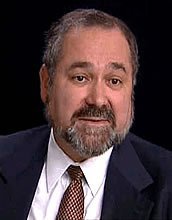
Steele on Electoral Reform – Part 6: Cabinet
Independent Voter Network, 17 March 2012
Presidential candidates must name prospective individuals to all Cabinet positions at least 90 days prior to Election Day, and those individuals must participate in such debates as the states might organize, and at least one national debate for each of the positions.
– – – – – – –
America is too complicated, and single individuals too limited, to tolerate as we now do the election of a single individual and their Vice President – an individual that then pays off all their campaign debts with Cabinet appointments, issuing virtual letters of marque for looting the public treasury. Goldman Sachs has “owned” the U.S. Treasury (and the Federal Reserve) for the past several Administrations, and nothing they do is good for the public.
President’s must IDENTIFY their planned Cabinet picks, and ideally those Cabinet officials should participate in Cabinet-level debates, for example, the nominees for Attorney General, Director of Intelligence, Secretary of State, Secretary of Defense, and Secretary of Commerce.
As I myself have found, running for President and having already announced a tentative Cabinet, those named are very reluctant to accept or be associated with a particular campaign, either from a reluctance to engage, or a desire to keep options open. With time, this one aspect of electoral reform will do a great deal to elevate the intelligence and integrity of our entire electoral process.
Here are the links to the basics that no presidential candidate today has a grip on — they are all puffery, some lies, and zero substance. In my view, it should not be possible to run for president in the USA without doing the things I have done at BigBatUSA.
A Governance Fundamentals
B Vice President & Secretary General for the Commonwealth
C Secretary General for Education, Intelligence, and Research
D Secretary General for Global Engagement
E Governor General
F Occupy ++
….1 Be Not Afraid
….2 Michael Moore Making Sense
….3 Occupy Directory (Online)
Previous: Part 5: Debates
Next: Part 7: Representation



